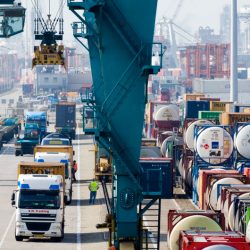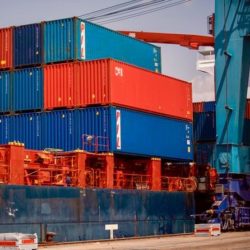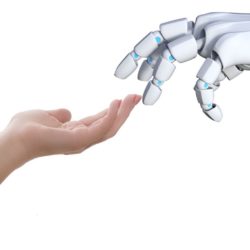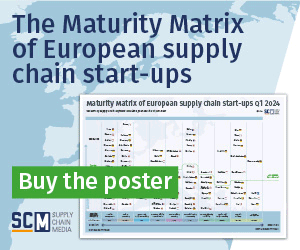Coyote Logistics: ‘Strike a balance between technology and human expertise’

European shippers and carriers are facing many of the same challenges. Furthermore, both types of companies believe in striking the same balance between technology and human expertise in the supply chain. These findings come from a recent study by Coyote Logistics, a global third-party logistics service provider (3PL), which explored the challenges facing supply chain professionals in today’s unpredictable market.
The European road freight market remains extremely fragmented, which makes it a complex sector for supply chain professionals to navigate. Half of all shippers work with more than 30 carriers at a time, so they need a good understanding of the market dynamics to organize things efficiently. The report titled ‘The Evolution of Technology + Humanity: Building a supply chain for Long-Term success’ combines the results of two unique shipper and carrier surveys with Coyote Logistics’ own customer research.
The studies reveal that shippers and carriers come up against largely similar problems, with the biggest challenges being rising costs, increasing complexity, shortage of capacity, the need for flexibility and agility, and increased visibility across the supply chain. Moreover, it appears that shippers and carriers both regard 60:40 as being the ideal balance between technology and human expertise across supply chain tasks. This confirms Coyote Logistics’ long-held belief that the two sides must work together to succeed in an ever-changing world.
Long-term success
“Both technology and human expertise are needed for long-term supply chain success,” says Joel Gard, Head of Europe at Coyote Logistics. “From the findings in the ‘Technology + Humanity’ study, we have come to more deeply understand the challenges shippers and carriers face today in relation to evolving technologies, which allows us to better support both parties with the knowledge, resources and insights they need to meet and exceed their business goals.”
To better understand how shippers and carriers can strengthen efficiencies in their supply chains, ‘Technology + Humanity’ analysed which of 13 tasks are best suited for human expertise, which functions can be optimized with technology, and which require a combination of both. The results demonstrate that human expertise is irreplaceable in creative, decision-making and strategic-thinking tasks, such as communicating with customers and resolving shipment and delivery problems.
60:40 is the ideal balance between technology and human expertise
Regarding automation, shippers and carriers regard technology as being best positioned to strengthen operational functions such as managing inventory and booking shipments. Although the study illustrates many opportunities to incorporate technology into the supply chain, respondents do not believe that any functions are best served by technology alone. Instead, shippers and carriers advocate a 60:40 balance of technology and human expertise in supply chain tasks.
“The best results happen when technology and humans are working together, as we focus on keeping up with the changing demands of the market and consumer. Neither can exist in a silo,” comments Christina Bottis, Chief Marketing Officer at Coyote Logistics. “Technology provides visibility and data that is critical to building a supply chain strategy, while human expertise is the key to unlocking the real values of the tools, synthesizing data into actionable supply chain initiatives and making the best strategic decisions for the business.”
Evaluating the supply chain
In order to achieve the ideal blend of technology and human support, shippers and carriers should begin by evaluating their current supply chains to identify which tasks technology can handle and which are best left for human expertise, according to Coyote Logistics. From there, supply chain professionals should investigate opportunities to increase efficiency and identify gaps in the business that technology or skilled talent can fill, the company concludes.









